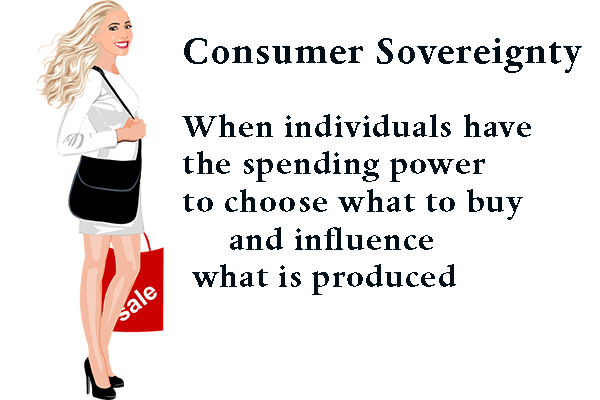

Consumer sovereignty is the idea that it is consumers who influence production decisions. The spending power of consumers means effectively they ‘vote’ for goods. Firms will respond to consumer preferences and produce the goods demanded by consumers. It is a manifestation of the ‘invisible hand’
Others argue that consumer sovereignty is a myth. Firms produce goods and use marketing techniques to sell consumers good they don’t really need or want.
In practice, there is an element of both. Firms may market new goods successfully like an iPod. But, if consumers are not impressed the good will not sell. There are countless new products, which never catch off.
In some markets, it is much harder to cater to consumer sovereignty because of lack of knowledge. Doctors rarely offer patients meaningful choices. But, prescribe drugs and treatment based on their knowledge. Also, patients don’t get to choose between different doctors or hospitals but go to the one prescribed by private insurance or the state provided health care.
You can, in theory, have a degree of choice, but in practice, it is a very different market – to save choosing a meal.
Traditional economic theory assumes consumers seek to maximise utility. The equimarginal principle suggests consumers weigh up the marginal benefit of different goods, and choose a combination of goods which maximises total utility.
However, behavioural economics suggests this model is unrealistic. In practice, individuals do not have the time or the inclination to rationally weigh up different options. Instead, we use heuristics and rough rules of thumb to take quick decisions. Also, individuals are heavily influenced by psychological factors, such as:
Related